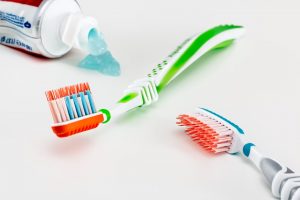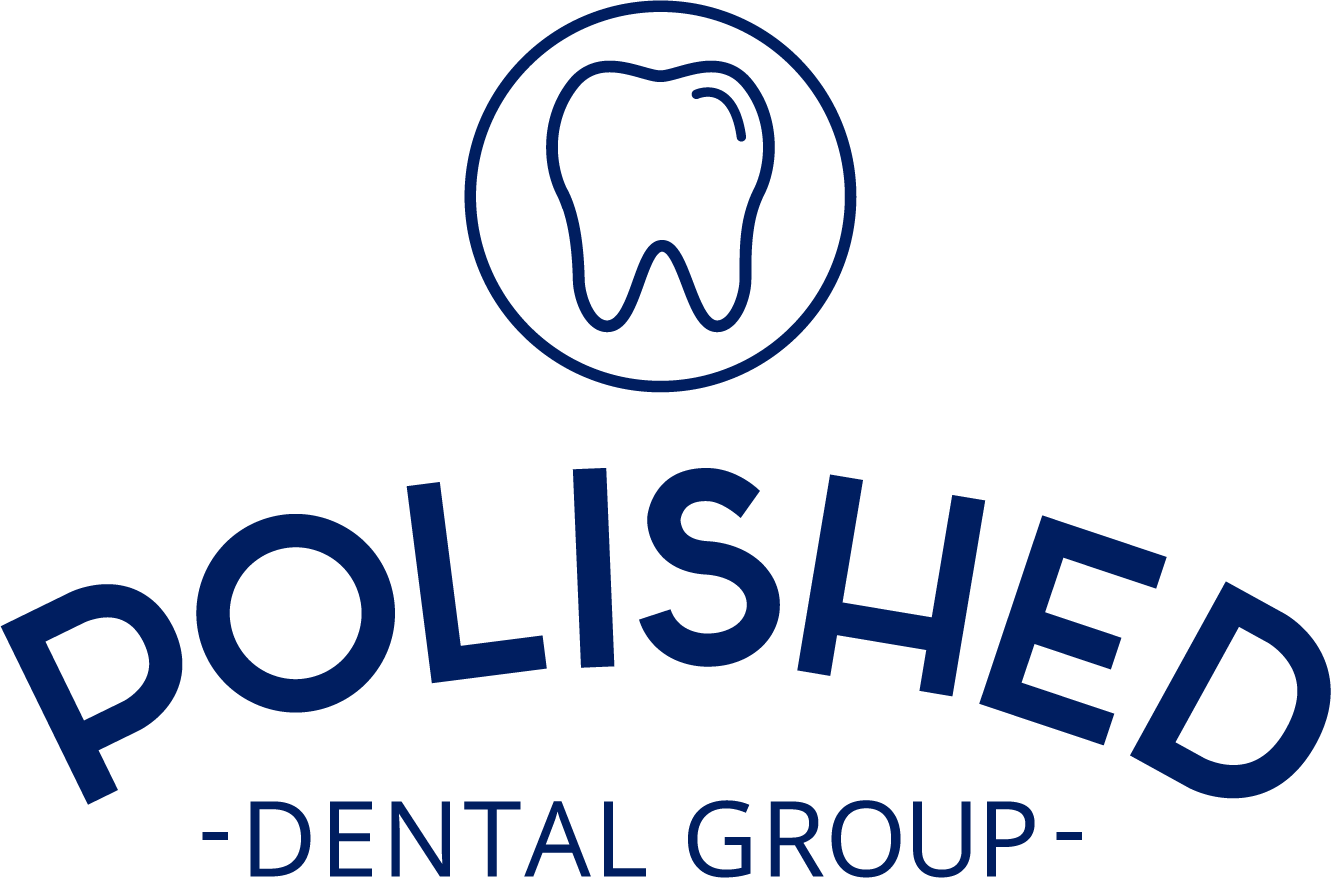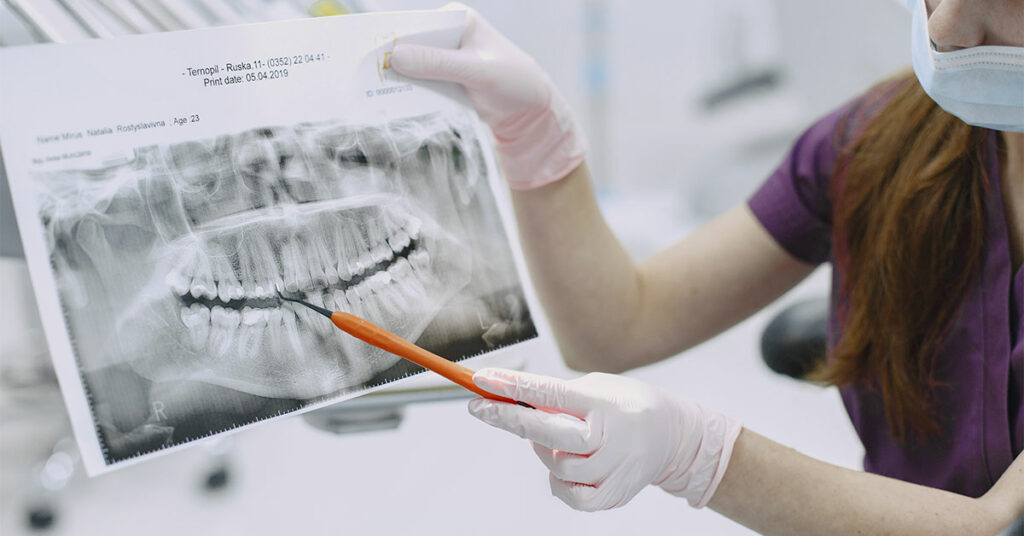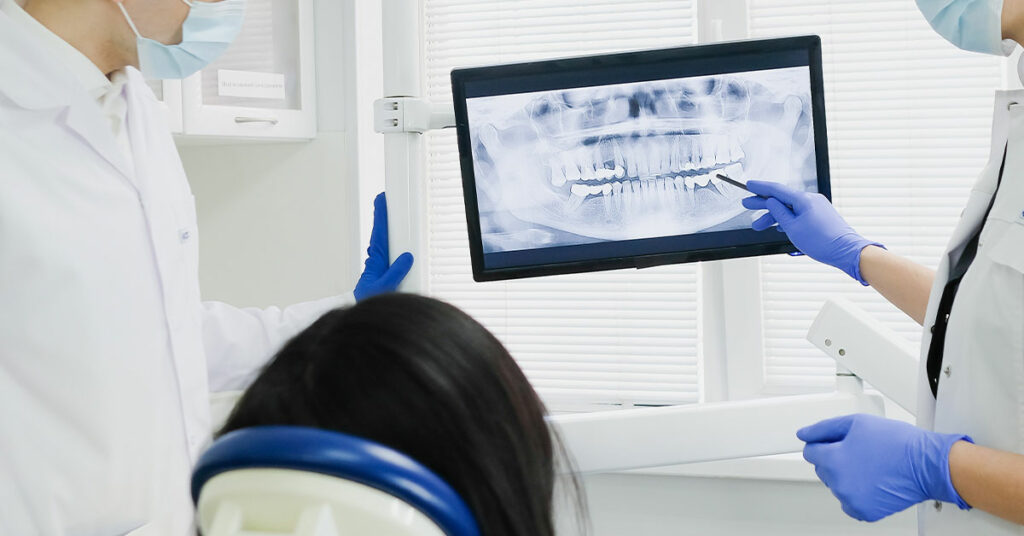Dental care – these small habits can seem innocent by themselves – but repeat the offence numerous times and they can really accumulate to negatively affect your pearly whites.
1. Relying on mouthwash for dental care
Using mouthwash for dental care works great for some extra cleaning power and to freshen your breath – when used in conjunction with brushing twice and flossing once every day.
Where it can let you down is when you rely on it to do the job of other tools – like the toothbrush and floss. Mouthwash is good at getting into crevices and gaps our toothbrush and floss cannot, but only if there is a toothbrush or floss disturbing the bacteria and plaque sticking to our teeth and gums beforehand. If we use mouthwash without brushing and flossing, it only really scratches the surface. Allowing the plaque and bacteria to remain as they are promotes tooth decay and gum disease and will have an adverse effect on your dental health.
2. Brushing too hard – need for more gentle dental care
 What’s worse than brushing twice a day? Doing it incorrectly so not only are you wasting time – but also damaging your dental health.
What’s worse than brushing twice a day? Doing it incorrectly so not only are you wasting time – but also damaging your dental health.We often see people who scrub at their gums which causes enamel to wear away and your gums to recede away. The correct method is to hold your brush at a 45 degree angle to your gums and use very light inwards pressure whilst moving the brush in circular motions – not back and forth like you’re scrubbing.
If you want a good test, use your toothbrush to push down on your gums with the same force you would when you brush your teeth – If you have the right pressure, your gums should really only slightly blanch – if at all. If your gums are blanched very white – try to reduce the pressure with which you push down to brush.
3. Brushing with any toothbrush but the softest you can find
You really should be using a soft or extra-soft toothbrush – anything harder is too hard and can cause needless damage.
Similar to brushing too hard, it can be very difficult to change habits when it comes to your toothbrush preference. The two go hand in hand – and we’ll often get patient say ‘but the soft ones lose their shape so quickly!’ If you can make a soft toothbrush last three months – it shows you have good brushing technique! If your soft toothbrush isn’t lasting three months and goes ‘furry’, try to be more gentle when brushing and to use a circular action instead of a back and forth scrubbing. If you’re still getting issues – let us know and we’ll be happy to help!
4. Chewing ice
 Some of us are very guilty of this! (Dr. Sang)
Some of us are very guilty of this! (Dr. Sang)Dr. Sang has actually cracked a perfectly good, never before filled, molar tooth – just by chewing on ice.
Your jaw muscles are very strong. Without our brain’s protective reflex telling us to stop biting (think of the last time you quickly stopped biting after accidentally biting your cheek on tongue) we can easily damage our own teeth by biting too hard.
Chewing on ice really tests this reflex. Ice can go from very hard to very soft extremely quickly and this can stop this protective reflex from working. The result? Our teeth banging against each other a lot harder than they should – causing costly and painful microfractures and cracks .
5. Loving lemons and orange smiles
Lemons are used commonly to freshen up some otherwise plain water. Great on a hot day but damaging to our teeth. The acid in the lemon corrodes away at our teeth and literally dissolves away the enamel layer. Again, this won’t happen after one drink, but if you multiply two or three glasses a day for multiple years – it really builds up!
Another innocent past time is biting down and keeping in orange slices. Your kids might do this when tucking into some fruit as a snack or during weekend sports breaks. As refreshing and fun as it is to have an orange slice mouthguard – it really increases the acid wear on our teeth. If your kids can’t let go of the past time – just make sure they’re rinsing with some water afterwards.




